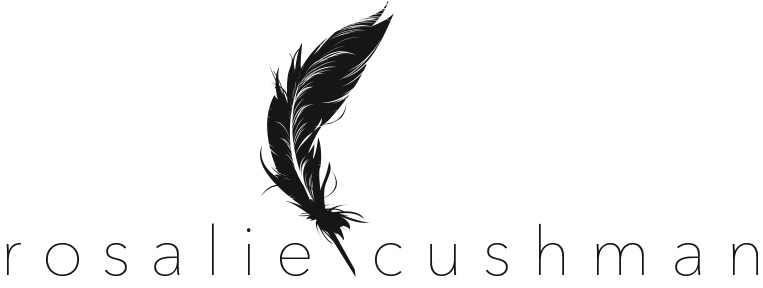I’m slated to have surgery soon on a particularly nasty fistula/hernia in a particularly unpleasant place (pelvis,butt). There’s a chance it won’t happen as I have an unusually nervous-about-lawsuits-PCP. She’s already expressed concern (liability risk) about my possible death on the table if she clears me. Sigh. While it’s frustrating (anger-producing) to have that possible decision in her hands not mine, a small part of me doesn’t actually care.
The irony here of course is the six-plus centimeters of bowel I sit on could blow open and kill me anyway even if I don’t have the surgery, but hey, I guess she’d feel vindicated! While I have spent several weeks fretting-and-stewing a good head of steam about it all, I’m beginning to be at peace either way. At least part of me is.
A New Medical Model
A few weeks ago I saw Dr Ezekiel Emanuel interviewed on a news show about a decision he’s personally made: to decline a good number of medical treatments and/or tests after hitting age 75. It sounded initially quite shocking to hear a world renowned oncologist and medical ethicist go public with his decision. But the more I think about it, the more understandable it might be, highly rational even!
Keeping people alive and doing whatever it takes, from carving up body parts to pharmaceuticals laced with life prolonging drugs is starting to feel crazier and crazier to me. I’ve had eight surgeries for a tumor that began in the rectum and traveled south to the anus, the body parts no one likes to mention. The whole problem began twenty-plus years ago though with far less invasive procedures. At some point however, and after two trans-anal surgeries, a zillion colonoscopies to scrape out double digit polyp growth, it had finally graduated to ever-greater proportions and invasions which, as night follows day, resulted in a permanent colostomy. The bag!!
After five years (which isn’t really all that long I suppose) of dealing with hernias and several complications such as a kinked colon, a skin separation that ended up with exposed flesh that then became necrotic (dead) and infected, etc. and now the worst complication of all in terms of discomfort and fright, there is a decision to make if not by my primary care doc, potentially by me.
Expiration Dates
The lengths we go to in modern medicine to keep people alive is extraordinary and often wondrous. But it’s impressive and valiant efforts looking back seem more worthy of younger bodies sometimes. I’ll be 71 years old very soon and a part of me (if the decision is mine alone to make even) is inclined to let this ole’ animal let nature take its course. Dr Emmanuel’s cutoff is 75, I’ll be 71, both still arbitrary numbers.
I like to think in practical terms sometimes which can be disconcerting to many in the medical community. Most professionals are hard-wired to keep people alive. At whatever cost. While I too want to make prudent decisions to preserve life, including my own, at what point do we consider surrendering to the inevitable? And the inevitable for me does not include hastening death but does not include avoiding it either. I heard one doctor say that Medicare “requires keeping the patient alive.” I don’t know how it’s worded in the manual (do they have a manual?) but suffice it to say, we’re all caught between a perpetual rock-and-a-hard place loop of sorts.
(I told one of my doctors that I’ve had a “do not resuscitate” document signed for the past 10 years. He literally told me that in the OR, they’ll ignore it and try to resuscitate me anyway!)
Different Strokes for Different Folks
My elderly friend Magie used to occasionally say to me “won’t this ever end?” She lived to be 96! My other elderly friend, Bennet, lived to be 94, which is nothing short of a miracle since he survived the holocaust which included several years of malnutrition (to put it mildly) while in the camps. But I think his drive to survive those years turned into an insistence on living well and long afterwards, a fierceness to go on with purpose and passion as an example of a different sort.
My role on the planet may be more nuanced. It may not require such heroic measures at all. Maybe, just maybe, letting the body run a natural decaying falling-apart course (which mine is clearly doing!) can also be an ethical example of not just choice or protocol but rather surrendering to the inevitable. I mean, come on!
Don’t misunderstand me: I don’t want to die at all, ever!! And actually because I believe in the eternal—of life before life as well as after death—my preference is to stay in this, oh-how-shall-I-put-this, “incarnation”. It’s all I know of me. But that does not mean there isn’t a “knowable me” in a different context, a different state of being. Just because I have no memory of existence other than the one I currently inhabit, doesn’t mean there isn’t one. How arrogant to think otherwise.
So I’m in a state at the moment that seems uncertain, to have this next abdominal surgery or not; to have doctors decide based on their best interests or mine. However it plays out, if the surgery does occur, I know one thing for sure it’ll likely be my last, or at least second to last. Unless of course there’s a lobotomy in the offing! I’d consider that!









Leave a Reply
Want to join the discussion?Feel free to contribute!